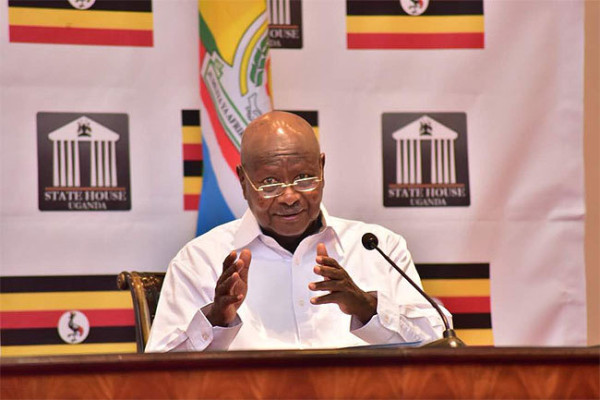By Karolina Werner
Ugandans headed to the polls on 14 January 2021 under an unprecedented and complete internet shutdown. Before the blackout, videos of rows of military vehicles and security forces marching down streets were circulated on social media in an ominous indication of things to come. Uganda has never known a peaceful transition of power and there have been many irregularities found in past elections, but this year has been especially violent. The election, or what Nic Cheeseman has called ‘a staged event to try to legitimate Museveni’s presidency,’ has drawn criticism from across the world. It has been marred by increasing violence, arrests, kidnappings, and severe limitations on freedom of expression. As in other authoritarian countries, coronavirus restrictions have been used to justify various excesses, including the use of deadly force, by the government. The government securitized the election and created exceptionalities, including one of the most stringent COVID-19 lockdowns on the continent, for the purpose of justifying their violent actions against its citizens, as it engaged in the seemingly liberal process of electing a new president.
President Yoweri Kaguta Museveni, who ran against ten opposition candidates, was once admired for proclaiming that the problem in Africa is one of leaders who overstay their welcome. Now this quote is being used to underscore the hypocrisy of the claimant. In 2021 he contested for his sixth term in office. He entered the race after changing the constitution twice, once to extend term limits and once to lift age limits, despite popular opposition in parliament and the general population. While accusing the opposition of being misguided and supported by unidentified foreign actors and homosexuals, Museveni has touted his unique experience and wisdom as leader of Uganda. And it is indeed difficult to argue against the fact that there is no one in the country with more experience of being head of state than he has, since he has been president for 35 years.
That Museveni was declared winner has come as no surprise. In an election with the lowest reported turn out ever recorded (despite the highest number of registered voters), the Electoral Commission announced that Museveni came away with 58% of the vote, while Kyagualnyi got 34%. Little information has been released about how these results were tallied. Tensions remain high as Kyagulanyi has repeatedly said that his party would not accept the rigged results, spurring accusations by the government of inciting violence. Kyagulanyi’s property surrounded by security forces since before the announcement of results, according to the government, for his protection and to prevent protests. Journalists, along with high-ranking diplomats such as the US ambassador to Uganda, were being denied access to his home. Kyagulanyi reported that food deliveries were also denied. This illegal house arrest remained in place until lawyers were able to file a petition with the court to have Kyabulanyi released. Following a ruling by the court, after 11 days, the security forces were withdrawn, allowing Kyagualnyi to hold a press conference and meet with his party representatives.
In the meantime, Kyagulanyi has said that he will be contesting the election outcome, through peaceful protests and possibly legal means. It is likely that the legal avenues will be met with the usual dismissal by the courts which have in the past acknowledged irregularities but held up the election results noting that the outcome would have been the same even if the irregularities did not happen. Considering the large number of parliamentary seats NUP won in these elections despite only being 6 months old, and Kyagulanyi’s international popularity, he arguably presents a greater danger to the regime than long time former opposition leader Kizza Besigye, who has been arrested countless times. As runner up in the presidential elections, Kyagualnyi is left with no role in the government, yet has a large following. Museveni has to tread carefully, as a revolution may be coming. The question the government must be asking itself is, what is the best method of dealing with Kyagulanyi to keep the country at a steady simmer for as long as possible. Meanwhile, Museveni will do what he does best; legitimise oppression by manipulating the narrative, use carrots to distract, and some very big sticks to keep people in line for as long as he can, as he plans for a successor he can stomach.
Karolina Werner is a NEST Postdoctoral Research Associate at the University of Western Ontario and Senior Fellow at the Norman Paterson School of International Affairs, Carleton University.
If you would like your article/opinion to be published on Uganda’s most authoritative news platform, send your submission on: [email protected]. You can also follow DailyExpress on WhatsApp and on Twitter (X) for realtime updates.



